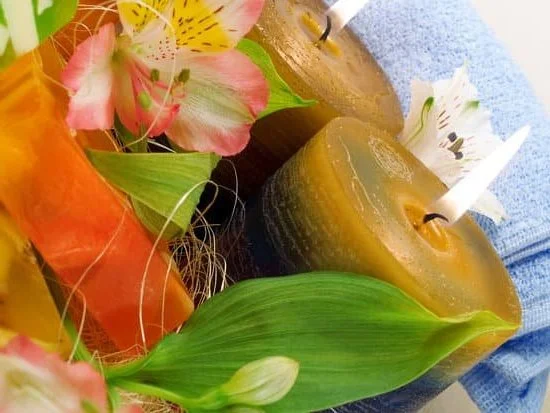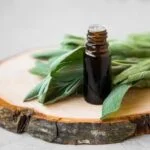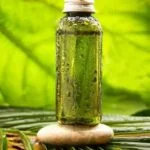Are you wondering what is the best diffuser for aromatherapy? Aromatherapy has gained popularity for its various benefits, and choosing the right diffuser is essential to fully experience those benefits. In this article, we will explore the world of aromatherapy and diffusers to help you make an informed decision on which type of diffuser is best for your needs.
Aromatherapy has been used for centuries as a natural way to improve physical, emotional, and mental well-being. By using essential oils extracted from plants, aromatherapy can help reduce stress, promote relaxation, improve sleep quality, alleviate anxiety, and even boost immune system function. Aromatherapy diffusers are tools that allow the dispersal of these essential oils into the air in order to enjoy their therapeutic effects.
When it comes to choosing a diffuser for aromatherapy, there are several types to consider, each with its own unique method of dispersing essential oils. From ultrasonic diffusers to nebulizing diffusers and evaporative diffusers, understanding the differences between these types can help you determine which one is best suited for your personal preferences and needs. Additionally, certain factors such as room size, noise level, and maintenance requirements should also be taken into consideration when selecting a diffuser.
Understanding Different Types of Aromatherapy Diffusers
When it comes to aromatherapy, diffusers play a crucial role in dispersing essential oils into the air, allowing you to experience their therapeutic benefits. Understanding the different types of aromatherapy diffusers available on the market is essential in finding the right one for your needs. The main types of diffusers include ultrasonic, nebulizing, and evaporative diffusers.
Ultrasonic diffusers are popular for their ability to create a fine mist by using ultrasonic vibrations. They are easy to use and often come with additional features such as LED lights or timers.
On the other hand, nebulizing diffusers do not require water and instead disperse pure essential oil particles into the air, making them more potent and effective for therapeutic purposes. Evaporative diffusers, on the other hand, use a fan to blow air through a pad or filter containing essential oils, dispersing the aroma into the surrounding environment.
When choosing the best aromatherapy diffuser for your needs, it’s important to consider factors such as the size of the area you want to cover, noise level (especially if you plan on using it while sleeping), how easy it is to clean, extra features like lighting or timers, and of course your budget. Ultimately, understanding the differences between these types of diffusers will help you make an informed decision when selecting one for your aromatherapy routine.
Factors to Consider When Choosing the Best Diffuser for Aromatherapy
When choosing the best diffuser for aromatherapy, there are several factors to consider to ensure that you find the most suitable option for your needs. Here are some key factors to keep in mind:
- Size and Capacity: Consider the size of the space where you plan to use the diffuser and choose a model with an appropriate capacity. Larger rooms may require a diffuser with a larger water tank or a more powerful output.
- Diffusion Method: Different types of diffusers use different methods to disperse essential oils into the air. Ultrasonic diffusers use water and vibrations, nebulizing diffusers break down oils into a fine mist, and evaporative diffusers use a fan to blow air through a pad or filter soaked in essential oils. Consider which method best suits your preferences and needs.
- Run Time and Settings: Some diffusers have multiple settings for run time and intensity, allowing you to customize the diffusion process. Consider how long you want the diffuser to run and whether you want adjustable settings.
- Noise Level: If you plan to use your diffuser in a bedroom or office, you may want to choose a model that operates quietly. Ultrasonic diffusers tend to be very quiet, while nebulizing diffusers can be slightly louder due to the atomization process.
By considering these factors when choosing an aromatherapy diffuser, you can make an informed decision that will enhance your overall experience with essential oils.
Overall, finding the perfect aromatherapy diffuser for your needs requires thoughtful consideration of various factors such as size, diffusion method, run time and settings, and noise level. By evaluating these aspects, you can select a diffuser that aligns with your preferences and creates an optimal environment for enjoying the benefits of aromatherapy.
Top 5 Aromatherapy Diffusers on the Market
The market for aromatherapy diffusers is vast and varied, with countless options available to consumers. When looking for the best diffuser for aromatherapy, it’s essential to consider factors such as cost, ease of use, coverage area, and design. To help you narrow down your options, here are five top-rated aromatherapy diffusers on the market:
1. **Urpower 2nd Version Essential Oil Diffuser:** This popular diffuser has a large 100ml water tank capacity, 7 different LED light colors, and can run continuously for up to 6 hours or intermittently for up to 12 hours.
2. **InnoGear Upgraded Version Aromatherapy Essential Oil Diffuser:** With a 150ml water tank and strong mist output, this diffuser is perfect for small to medium-sized rooms. It also features a calming color-changing LED light.
3. **VicTsing Essential Oil Diffuser:** This stylish wooden grain ultrasonic diffuser can hold up to 300ml of water and has an adjustable mist mode that offers continuous or intermittent operation.
4. **ASAKUKI Premium Essential Oil Diffuser:** Boasting a large 500ml capacity and advanced ultrasonic technology, this diffuser effectively disperses essential oils throughout the air while also serving as a humidifier.
5. **ArtNaturals Therapeutic-Grade Aromatherapy Essential Oil Set & Diffuser:** For those looking for an all-in-one solution, this set includes eight popular essential oils along with a sleek and modern ultrasonic diffuser with seven different LED lights.
When considering which aromatherapy diffuser is best for your needs, it’s crucial to think about factors such as the size of the area you want to cover with essential oils, how long you want the diffuser to operate before needing a refill, and whether extra features like color-changing lights are important to you.
Detailed Review of the Best Ultrasonic Diffuser for Aromatherapy
Aromatherapy has gained popularity in recent years for its potential health benefits including stress reduction, improved sleep, and relaxation. One of the most popular and effective ways to practice aromatherapy is by using a diffuser. There are several types of diffusers available in the market, each with its own unique features and benefits. One of the most widely used types is the ultrasonic diffuser.
Ultrasonic diffusers work by using electronic frequencies to create vibrations that break essential oils into tiny particles, dispersing them into the air as a fine mist. This type of diffuser also serves as a humidifier, adding moisture to the air which can be especially beneficial during dry weather or in air-conditioned rooms. Here are some of the best ultrasonic diffusers on the market:
- URPOWER 2nd Version Essential Oil Diffuser: This sleek and compact diffuser has a large water capacity and offers both intermittent and continuous mist modes.
- InnoGear Upgraded Version Aromatherapy Essential Oil Diffuser: With 7 different mood lights and 4 timer settings, this diffuser provides a customizable experience for users.
- ASAKUKI 500ml Premium Essential Oil Diffuser: This high-capacity diffuser also functions as a cool mist humidifier and features an automatic shut-off function for safety.
When choosing the best ultrasonic diffuser for aromatherapy, it’s important to consider factors such as size, water capacity, run time, additional features like mood lighting or timer settings, and ease of maintenance. Each individual may have different preferences so it’s essential to evaluate these factors based on personal needs and lifestyle.
Comparison of Nebulizing and Evaporative Diffusers for Aromatherapy
When it comes to choosing the best diffuser for aromatherapy, one must consider the different types available in the market. Two popular options are nebulizing and evaporative diffusers, each with its own set of benefits and drawbacks. Understanding the differences between these two types can help you make an informed decision when selecting the best diffuser for your aromatherapy needs.
Nebulizing Diffusers
Nebulizing diffusers work by dispersing essential oils into the air in the form of a fine mist. These diffusers do not require heat or water, which allows them to maintain the integrity and therapeutic properties of the essential oils being used. The mist released by nebulizing diffusers is highly concentrated, making them an ideal choice for those looking to experience the full benefits of aromatherapy.
One potential downside of nebulizing diffusers is that they can be louder due to the mechanical components involved in creating the mist. Additionally, because they disperse oils directly into the air without dilution, they may not be as cost-effective as other types of diffusers that use water or heat to release essential oils.
Evaporative Diffusers
Unlike nebulizing diffusers, evaporative diffusers utilize a fan or heat source to cause essential oils to evaporate into the air. This type of diffusion method allows for a gentler release of essential oils, making them suitable for smaller spaces and for those who prefer a more subtle aroma. Evaporative diffusers are often more affordable than nebulizing ones and are generally easy to use and maintain.
However, one potential drawback of evaporative diffusers is that they may not provide as strong or long-lasting aroma as nebulizing ones. Additionally, because the essential oils come into contact with air during evaporation, their therapeutic properties may be slightly compromised.
By understanding the characteristics and differences between nebulizing and evaporative diffusers, individuals can make an informed decision about which type best suits their aromatherapy needs. Each type has its advantages and drawbacks, so it’s important to consider factors such as desired scent intensity, noise level, budget, and maintenance requirements before making a decision.
Tips for Using Aromatherapy Diffusers Effectively
When it comes to using aromatherapy diffusers effectively, there are a few key tips to keep in mind. Aromatherapy can be a powerful tool for promoting relaxation, reducing stress, and creating a pleasant environment in your home or office. To make the most of your aromatherapy diffuser, consider the following tips:
Choose the Right Essential Oils
One of the most important factors in using an aromatherapy diffuser effectively is choosing the right essential oils. Different essential oils offer different benefits, so it’s important to select oils that will help you achieve your desired outcome. For example, if you’re looking to promote relaxation and reduce anxiety, consider using lavender or chamomile essential oils. If you’re looking for an energy boost, citrus scents like lemon or orange may be more suitable.
Use Clean Water
When using an ultrasonic or nebulizing diffuser, it’s important to use clean water to ensure that the device functions properly and that the essential oils are dispersed effectively. Using tap water with high mineral content can lead to buildup and clogging in the diffuser, so it’s best to use distilled or filtered water when possible.
Maintain Your Diffuser Regularly
To ensure that your aromatherapy diffuser continues to work effectively, it’s important to maintain it regularly. This includes cleaning the device according to the manufacturer’s instructions and replacing any worn-out parts as needed. By keeping your diffuser clean and well-maintained, you can enjoy consistent and effective aromatherapy sessions.
Conclusion
In conclusion, choosing the best diffuser for aromatherapy depends on your personal preferences and needs. Whether you prefer a nebulizing diffuser for stronger scent or an evaporative diffuser for more subtle fragrance, understanding the different types of diffusers is essential in finding the perfect one for your aromatherapy experience. Consider factors such as room size, noise level, budget, and design when making your decision.
It’s important to note that while ultrasonic diffusers are popular for their ability to also humidify the air, they may not be suitable for everyone, especially those sensitive to noise. On the other hand, nebulizing diffusers are known for their powerful scent dispersion but can be more expensive. Evaporative diffusers are a great option for those looking for a quieter and more affordable alternative.
In the end, the best diffuser is one that meets your specific aromatherapy needs and fits seamlessly into your lifestyle. Whether you prioritize aesthetics, functionality, or ease of use, there are plenty of options available on the market to suit every individual. With this comprehensive understanding of aromatherapy diffusers and careful consideration of different factors, you can confidently find the perfect aromatherapy diffuser for your needs.
Frequently Asked Questions
How Do I Choose a Good Aromatherapy Diffuser?
When choosing a good aromatherapy diffuser, it’s important to consider factors such as the size of the space you want to scent, the type of essential oils you plan to use, and your personal preferences for design and features.
Look for diffusers with different settings for mist intensity and timer options, as well as ones that are easy to clean and maintain.
Are Aromatherapy Diffusers Good?
Aromatherapy diffusers can be beneficial for creating a pleasant and relaxing atmosphere in your home or workplace. They can help to disperse essential oils into the air, which may have potential benefits for mood enhancement, stress reduction, and improving air quality. However, it’s important to use them responsibly and follow safety guidelines when using essential oils.
What Is the Best Smelling Aromatherapy Oil?
The best smelling aromatherapy oil is subjective and depends on personal preferences. Some popular options include lavender for its calming scent, peppermint for its invigorating aroma, and citrus oils like lemon or orange for their uplifting and refreshing smell. It’s also worth experimenting with different blends to find the combination that appeals most to your senses.

Are you looking for a natural way to improve your health and wellbeing?
If so, aromatherapy may be the answer for you.





